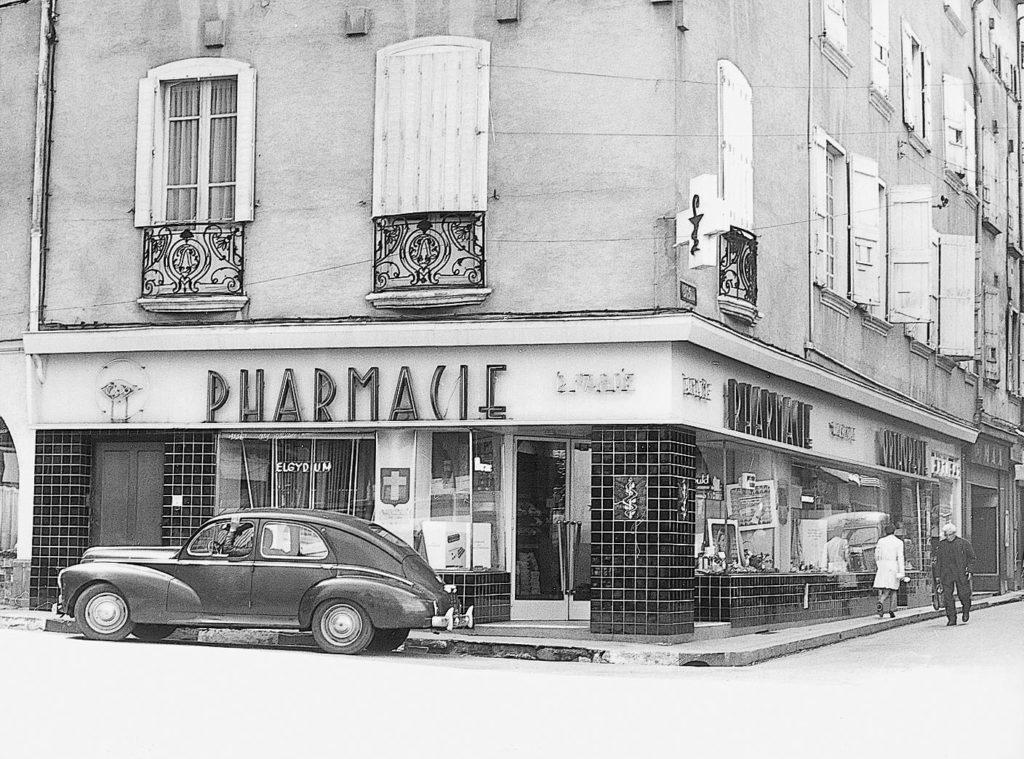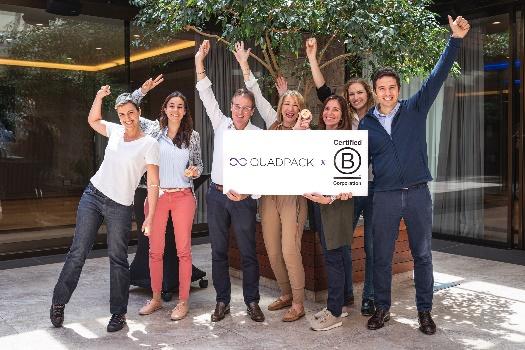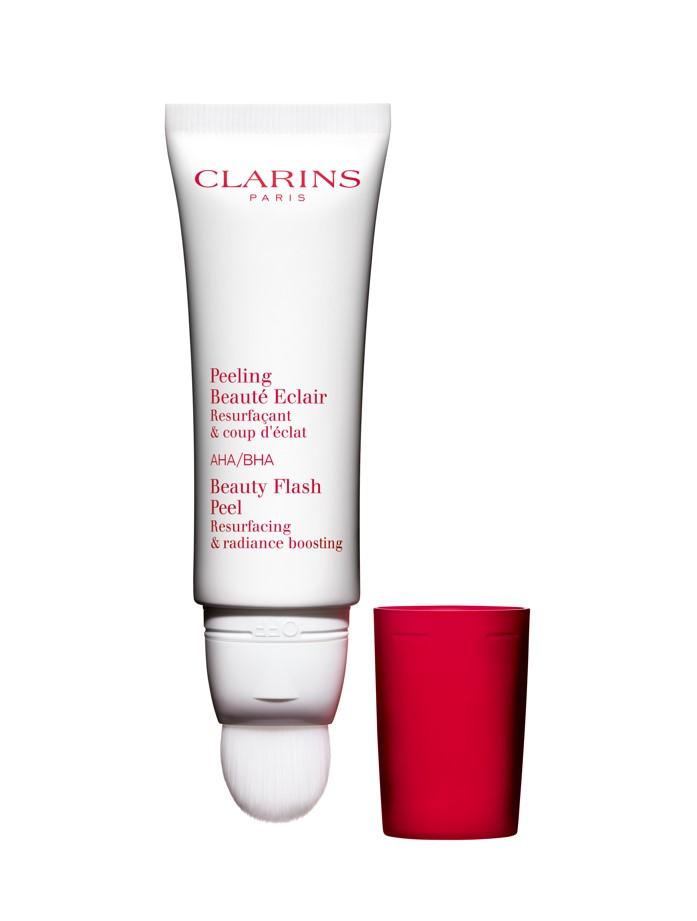Founded on May 30, 1962 in Castres by a young pharmacist, entrepreneur at heart and botany enthusiast, the Pierre Fabre Group is preparing to celebrate its 60th anniversary. In the space of 6 decades, without ever renouncing its Occitan roots, Pierre Fabre has become a world-class player in oncology, dermatology and dermo-cosmetics. 95% of its industrial production is carried out between Tarn, Flérault, Gers, Lot and Loiret and more than two-thirds is exported to 116 countries.

It all began in a pharmacy located on Place Jean-Jaurès in Castres, Pierre Fabre's hometown. It was here that the young pharmacist, a start-upper before his time, developed his first drug in the late 1950s. It was Cyclo 3, a veinotonic created from an active ingredient extracted from the roots of a local shrub: the little holly. Cyclo 3, which represented a real therapeutic advance for the time.
The enthusiastic reception Cyclo 3 received from the patients of his pharmacy convinced Pierre Fabre to found his own company. This was done on May 30, 1962, the day the articles of association of Laboratoires Pierre Fabre were officially registered with the Castres Commercial Court.
" Like the little holly tree that remains green and leafy in all seasons, the Pierre Fabre Group has never stopped growing since 1962. Six decades of innovation at the service of patients and consumers, six decades of working to strengthen the link between medicine and naturalness, six decades of radiating throughout the world while remaining faithful to our region of origin. We are proud of our Group's history, rich in the humanistic values instilled by our founder. He was a visionary who understood well before his time that there can be no progress without respect for Nature and Man. "comments Marc Alias, Director of Communications & Engagement.
In 2021, Pierre Fabre achieved a turnover of 2.5 billion euros, divided between Medicines (45%) and Dermo-cosmetics (55%), two thirds of which were generated outside France. This international reach does not prevent the Group from making "Made in France" a strategic priority. More than 95% of the products manufactured by the Group in 7 plants located in the departments of Tarn, Hérault, Gers, Lot and Loiret. Pierre Fabre employs 5300 people in France (out of 9600). 68% are based in Occitania where the Group
concentrates its main decision-making centers and makes significant investments each year.
60 years after its creation and the launch of Cyclo 3, Pierre Fabre generates 62% of its sales with products whose active ingredients are derived from nature. 75% of the plants used are cultivated without phytosanitary treatments (nearly half of which are organic), with the Group cultivating 181 hectares of organic farmland in the Tarn region. Each year, its researchers develop between 3 and 5 new organic plant active ingredients or eco-extracts.
On the occasion of its 60th anniversary, the Pierre Fabre Group is opening its doors to the public in the Tarn region:
- An ephemeral "Pierre Fabre village", set up in the heart of Castres from July 8 to 10, will present all of the Group's activities to the public through some forty events.
- For the first time, the general public will have the opportunity to discover two emblematic sites of the Pierre Fabre Group: every Tuesday morning, between 8:30 a.m. and 12:00 p.m., a tour organized in partnership with the Castres tourist office will allow visitors to discover the Botanical Conservatory of Cambounet-sur-le-Sor, where the Group houses 916 varieties of plants (254 of which are endangered), and the manufacturing plant for dermo-cosmetic specialties in Soual.

To commemorate the Group's 60th anniversary, let's go back in time and relive some of the key moments in its history.
1951 - A force that will ...
At the age of 25, Pierre Fabre made a decision that would change his life: he obtained a loan from the bank to open a pharmacy in his hometown in the Tarn. In 1958, the pharmacist developed Cyclo 3, based on local holly, to help his patients fight their problems of heavy legs and blood circulation. The success of Cyclo 3 allowed Pierre Fabre to found his own company in 1962. This man, a visionary, was extremely involved in the development of the
and takes care of everything. He visits the manufacturers to check the manufacturing conditions of the plant extract. And it is still him who goes on the road with his product in his briefcase to meet doctors and pharmacists, in Paris, Bordeaux and as far as Alsace.
1962 The birth of Pierre Fabre Laboratories
On the strength of his first commercial success and an entrepreneur at heart, Pierre Fabre decided to combine a vocation, pharmacy, with a passion, botany. This is how the Pierre Fabre Laboratories came into being. A building was built to house the first employees who worked in research and manufacturing. Little by little, the young laboratory's portfolio was expanded to include new medicines.
1965 The invention of dermo-cosmetics
Klorane shampoo with chamomile marks the launch of a new activity: dermo-cosmetics, which will be the exclusive preserve of pharmacies. This was a founding moment in the company's history, reflecting Pierre Fabre's desire to take care of everyone, "from their health to their beauty". For him, skin and hair care products require the same level of care as medication.
1976 Nature at the heart of the Group
Selecting the right plant varieties, cultivating in a more respectful way, building a plant extraction plant in Gaillac, creating laboratories and botanical gardens, revealing the properties of Avène-les-Bains thermal spring water and formulating plant-based health and care products: this passion that runs through its veins is the lifeblood of the Group.
1999 The Pierre Fabre Foundation
86% of Pierre Fabre's shares are held by the Pierre Fabre Foundation, which was recognized as a public utility in 1999, and secondarily by its employees through an employee shareholding plan. Pierre Fabre wanted the Foundation to become the Group's main shareholder by designating it as its universal legatee. This is a unique model in France, since it is the only French company to pay 86% of its dividends for the common good.
Born from the indignation of its founder at the scourge of counterfeit medicines in Africa, the Foundation has been working since its creation to improve access to healthcare for populations in the South, in conjunction with local actors.
2005 A human adventure above all
In 2005, the Ruscus shareholding plan was set up. Today, nearly 9 out of 10 employees are shareholders, associated with the Group's results and thus contributing to its independence. In November 2021, the American magazine Forbes published its annual ranking of the world's best employers. At the top of the ranking is the Pierre Fabre Group, a testimony to its reputation in the industry and to the attachment of its employees to their company.
2011 Launch of Sterile Cosmetics
Sterile Cosmetics is currently the first and only solution to offer formulas with a minimum of components, containing only essential active ingredients for the most sensitive skin, without any preservatives. A new generation of dermo-cosmetic products carried by the brands Eau Thermale Avène, A-Derma and Ducray.
2013 Pierre Fabre bequeaths his company to a foundation of public utility
To ensure the company's future and avoid financial speculation, Pierre Fabre bequeathed all of his shares to the eponymous Foundation, recognized as being of public utility since 1999. This was the last altruistic and innovative gesture of a visionary entrepreneur, driven throughout his life by humanist values in the service of patients and his native region. A shareholding structure unique in France for an industrial company of this size.
2018 - Skin cancer, a new hopeful treatment
In 2015, the Pierre Fabre Group signed a global partnership with Array BioPharma, an American biotech based in Colorado. The aim was to develop and market a targeted cancer therapy combining two new-generation molecules. At the end of 2018, the European Medicines Agency (EMA) authorized the marketing of this new treatment for adult patients with advanced melanoma carrying the BRAF mutation. In 2020, Pierre Fabre receives marketing authorization for one of these two molecules for the treatment of metastatic colorectal cancer with BRAF mutation (in combination with another molecule), a first in Europe.
2022 - The Pierre Fabre Group opens its doors for its 60th anniversary Pierre Fabre Village from July 7 to 10
Located on the emblematic Pierre Fabre La Michonne site in Castres, a village presenting the group's activities will be entirely created and open to all. A unique event to come and meet the group's employees who will be leading educational workshops, conferences and interactive stands.
Opening of the Soual plant and the Botanical Conservatory to the public from June 2022 For the first time, the Pierre Fabre Group is opening the doors of its Botanical Conservatory located in Cambounet sur le Sor and its dermo-cosmetic production plant in Soual. Once a week, the general public will have the privilege of going behind the scenes of 2 new places to understand the origins, the functioning and the ambitions of the Group. Much more than a guided tour, it is a journey into the Pierre Fabre universe, discovering more than 240 plants used in the group's products, the actions taken to preserve them, as well as the way in which the dermo-cosmetic products are manufactured before being sold in pharmacies and parapharmacies.















